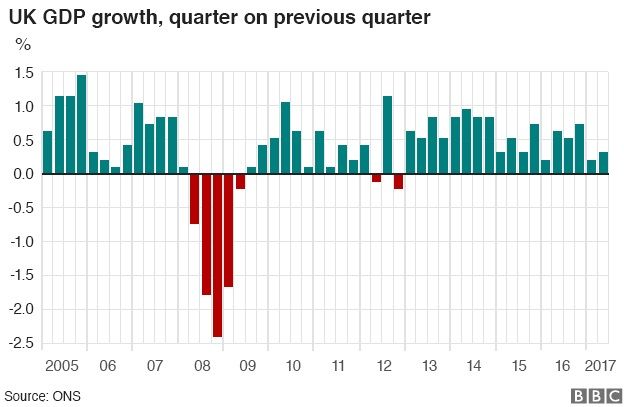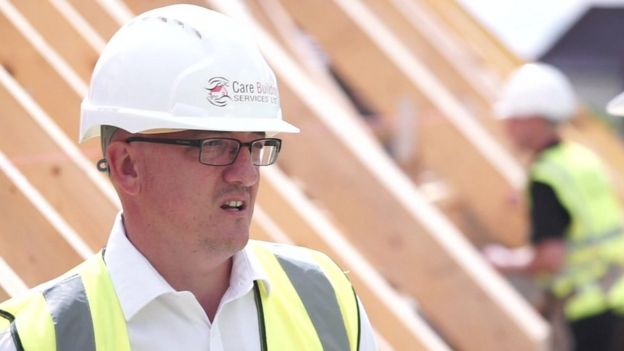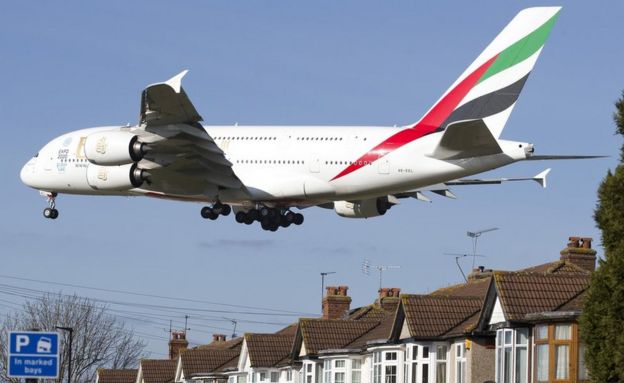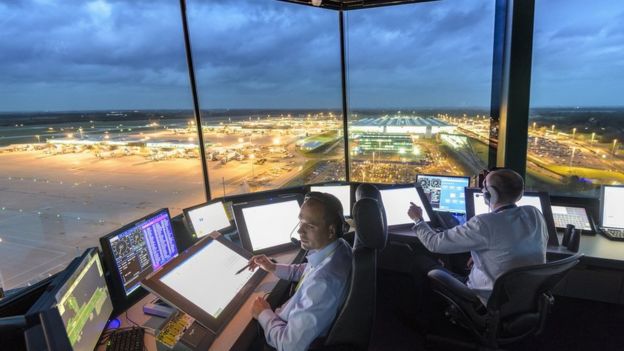By
Tobin Harshaw

In his sphere of influence?
Photographer: Sasha Mordovets/Getty Images
Here's a question for Cold War geeks out there: Has there ever been a period -- even, say, the Cuban Missile Crisis -- during which Russia was on the front pages for such a sustained period of time as it has been since Donald Trump took office?
In this week's twist, Congress passed a new sanctions bill that would largely prohibit President Donald Trump from easing pressure on the Kremlin. Russian President Vladimir Putin responded by ordering the U.S. to send home many of its diplomatic officials and seizing a U.S. warehouse and country house near Moscow. It's a petty move, equaled in pettiness by the Barack Obama administration's seizure of Russian diplomatic properties in Maryland and New York.
*Major digression: Since this involved Real-Estate-Mogul/Deal-Maker-Extraordinaire Donald Trump, I'd love to make a judgment on who won the property swap here. Unfortunately, while we know the Russian estate on the Maryland shore (top) is one sweet diplomatic setup, the only footage I could find of the American-owned dacha at Serebryany Bor (bottom) wouldn't exactly make for must-see viewing on HGTV.
Back to the main story: Trump, who had threatened to veto a previous version of the legislation, now faces a dilemma. He could change his mind and lose face, or veto a sanctions package that only five -- five! -- members of Congress have voted against.
It's been a neat little tempest in a teapot, but it all seems insignificant compared to Ukraine, where Russia annexed the entire Crimean Peninsula; Syria, where half a million people have died; and meddling in the 2016 presidential race, which depending on what party you belong to either did or did not cost Hillary Clinton the election.
So, how important are these sanctions in terms of the larger picture? For an informed opinion, I turned to somebody who has been at the center of the imbroglio: Evelyn Farkas. As deputy assistant secretary of defense for Russia, Ukraine and Eurasia from 2012 to 2015, Farkas was one of the Obama administration's point people in countering Putin's aggression. She is now a nonresident fellow at the Atlantic Council and a national security contributor for MSNBC. Here is an edited version of our discussion:
Tobin Harshaw: Many people are skeptical that sanctions work. Others argue that, for example, sanctions are what brought Iran to the bargaining table on the nuclear deal. So, speaking in general terms, where do you side?
Evelyn Farkas: I think the key thing with sanctions is how well they're enforced. Even with the narrowly targeted measures we have in place, we have found that tightening and updating is necessary. We have seen sanctions targets change the names or the ownerships of their companies, so the enforcement folk need to alert the sanction designers to adjust the penalty measures accordingly.
In that respect, when Secretary of State Rex Tillerson said in his confirmation hearing that he was critical of sanctions, he said he wouldn't necessarily feel that way if they were enforced fairly and across the board. That's a good point. But we have insufficient resources to enforce the ones we have in place, and with these additional measures we need to beef up the ability the Treasury and Justice Departments have to enforce them fully.
The reason Iran sanctions worked was that we were able to enforce them with political pressure -- for example, getting on the phone with India to tell them not to buy Iranian oil.
TH: On Russia in particular, it seems to the layman that sanctions have done little. On the flip side, why would the Russians object so stridently to the new sanctions package and the Magnitsky Act unless it was hurting them? Do Putin's cronies really feel the pinch?
EF: Yes. You want them tailored in a way that you bring about your objective as soon as possible. That's why under Obama we tailored the Russia ones to affect the people and the companies directly around Putin.
TH: What the White House really seems to object to in this new bill is that it would handcuff Trump's ability to waive penalties or ignore Russian action. Do you think Congress is overstepping its bounds into executive branch territory?
EF: Under ordinary circumstances, as somebody who has spent half her career in the legislative branch and half in the executive and thus understands the separation of powers, I would not necessarily be in favor of what is in essence a congressional veto power of the president. But these are not normal circumstances. Congress is clearly signaling in the loudest possible fashion that it doesn’t trust the president when it comes to Russia policy.
Other people might point to polls indicating there is more of a positive attitude toward Putin or Russia among Republican voters. I don't think that's the right indicator to look at. Polls are ephemeral. In as much as Congress is an extension of the American people, I believe the American people are also speaking to President Trump. They don't trust him on Russia.
TH: Do you worry, as some have warned, that Trump would be able to drag his feet on certification and enforcement of the Russia measures?
EF: It is certainly possible that the White House could issue directions to the agencies to ease up on enforcement. But I will tell you that within the civil service corps, they don't differ from Congress or the U.S. people in thinking the only way to stop Putin's aggression against his neighbors and his of undermining Western democracies is by standing up to him.
TH: Most people feel that Putin's annexation of Crimea is set in stone. Do you agree?
EF: No. I think in the short run and maybe the medium run the status quo will remain in place, with Crimea in a kind of a limbo status not agreed upon in international law. But ultimately there will have to be negotiations and an agreement between Russia and Ukraine. The U.S. is still applying pressure. Under Obama, we continually tightened Ukraine sanctions. And Trump met with Ukrainian President Petro Poroshenko at the White House before his first meeting with Putin. At that time the administration released a number of additional names and entities to add to the sanctions list.
TH: Likewise, what can we do that is not being done to help Ukraine gain control of the rebel areas in the Russian-speaking east?
EF: We need to ramp up our military training program and give the Ukrainians lethal defensive weapons and economic assistance. We need to really lean in when it comes to Ukraine because if we cave there, Putin will try to push his luck elsewhere, and then it may become a real existential issue for some of our NATO allies.
The fact that Tillerson designated Kurt Volcker, who is dedicated to Ukrainian sovereignty, as U.S. envoy is a real point in favor of the administration. But the U.S. and its allies need to move quickly to increase Ukraine's deterrence ability, because I am hearing rumblings about new possible offenses by Russian-backed rebels and so-called little green men. It reflects the fact that the military balance has tilted further toward Moscow than ever before because of the military systems and forces they have put into Crimea. We have to make sure there is no temptation for Russian to seize more of the land bridge across eastern Ukraine to help them supply Crimea.
Putin is likely to run for re-election next year, and his strategy requires him to show voters that he is making Russia great again. The Russian military is somewhat stuck in Syria, but we should expect some action somewhere. Putin is the king of taking us unawares and knocking us off balance.
TH: Many feel that to get cooperation with Russia in Syria, both in terms of stamping out terrorist groups and a political deal for the long term, we will simply have to ignore what Russia did in Ukraine. Is that an acceptable price to pay?
EF: Absolutely not. We never believed in linking the two under Obama and neither, thankfully, does this administration. I see no evidence that Trump is linking them. He has correctly identified Syria as a place where we can reach a deal with the Russians, and we need to reach that deal. But we need leverage, and our president has lessened that leverage by reducing support of Syrian rebel forces. In Ukraine, the administration needs to do more than nurture the Minsk peace-talk process, it needs to find a way to give the Ukrainians more leverage.
TH: The Russian incursion into Ukraine was what we call "hybrid" warfare -- a combination of propaganda, fomenting unrest, arming rebels, bringing in Russian troops out of uniform (little green men), etc. Do you think Putin would try this stealth approach in a Baltic state or other NATO member? If so, how would we respond, and would we ever trigger Article 5 -- the requirement that all members come to the aid of any member under attack -- for anything less than a full-on invasion?
EF: I don't believe Putin wants war with NATO or the U.S. However, if we don’t stand up to him in Ukraine, he will be tempted to try our resolve in a NATO country where Article 5 applies. He would not likely conduct a traditional invasion, or even use little green men -- he would use local forces to see if he could make us look weak and create more infighting in NATO. Ultimately, what he wants is a weak West and to eliminate institutions like NATO and the European Union so the West cannot counter Russia in its "near abroad."
He has similar goals in Syria and globally. Russia considers itself a global power and is interested in selling weapons and oil worldwide, and only the U.S. and its allies and institutions can be a check on him.
TH: The U.S. and NATO have stepped up their forward posture in Eastern Europe, with I think four combat brigades rotating in and out. But does this really intimidate Putin -- they would be nothing but a speed bump in an invasion? Does it just give him an excuse to militarize his side of the border?
EF: I think the armored brigades are necessary, but I would feel more reassured if they were of a more permanent nature. What we are trying to do is straddle a line between providing deterrence and not violating the NATO-Russian Founding Act of 1997. That agreement requires signatories to respect the sovereignty of states and the sanctity of borders. And under it, NATO agreed not to station permanent significant forces in its new Eastern European members.
But Russia, through its actions in Ukraine, has already violated the act. We shouldn't have our hands tied unnecessarily.
TH: Let's go back to the U.S. election hacking, in combination with what you say are Putin's aims in Eastern Europe. Is his master plan simply to create disarray in the West, or is there something more specific?
EF: His game plan is to create disarray, but the reason he wants it is to get back this 19th-century sphere of influence in the old czarist and Soviet space in Eastern Europe -- and if he can achieve it in the old East Bloc, he will push for more. He wants us weak and divided, so he can infringe on the sovereignty of the states in those regions to get his way.
This column does not necessarily reflect the opinion of the editorial board or Bloomberg LP and its owners.






